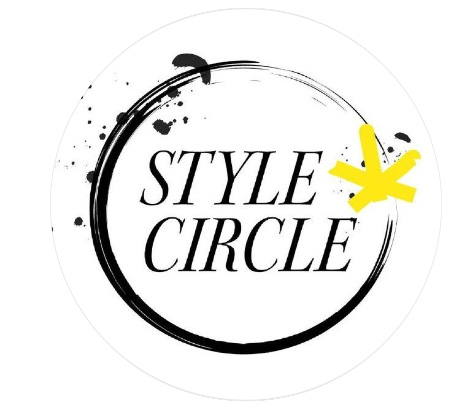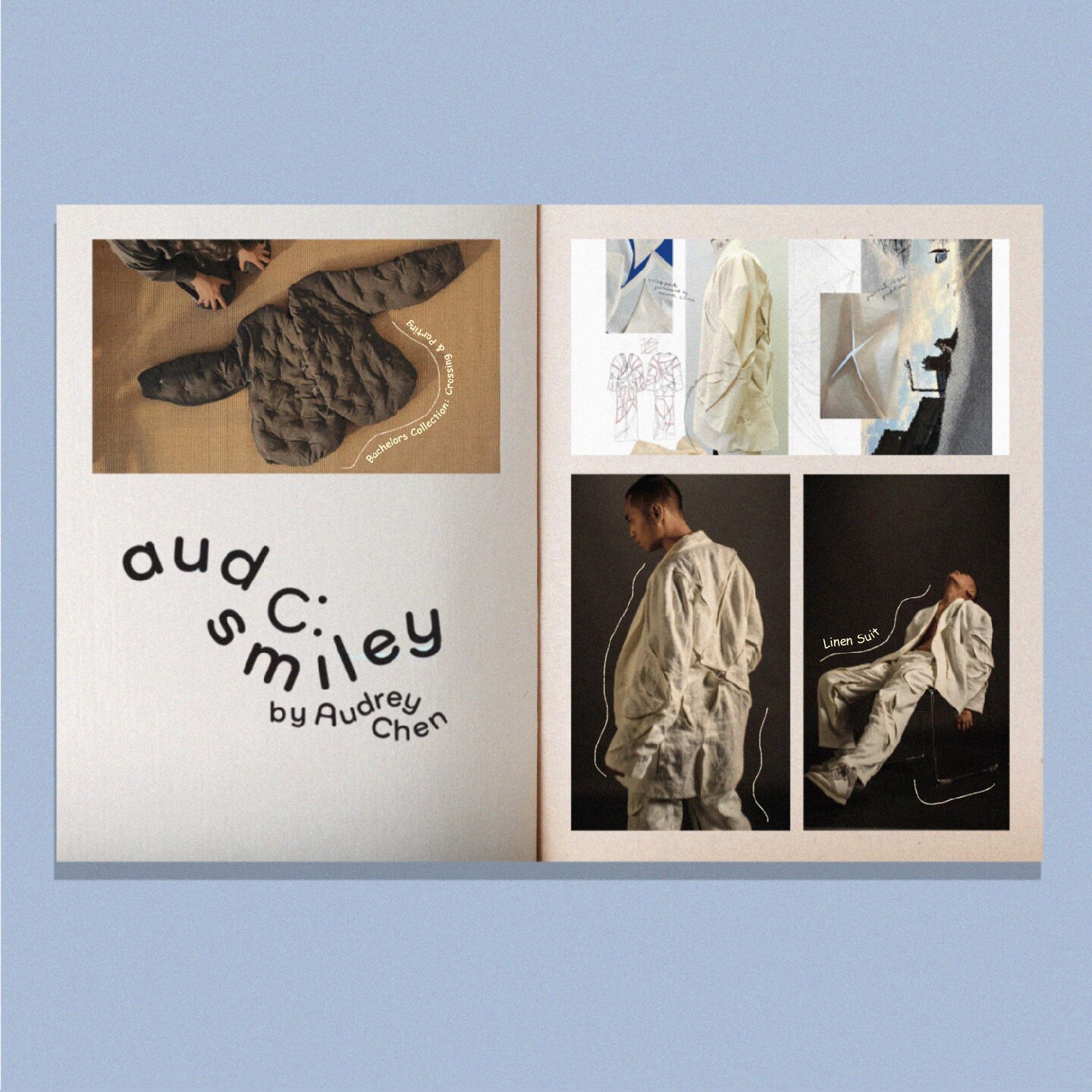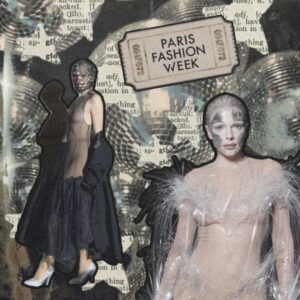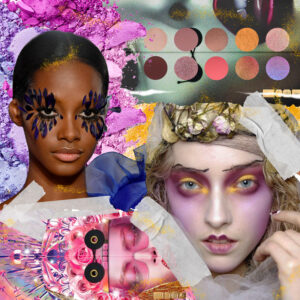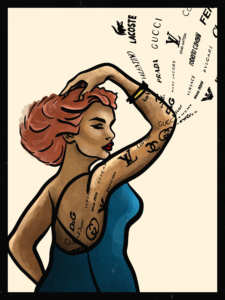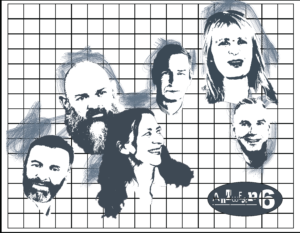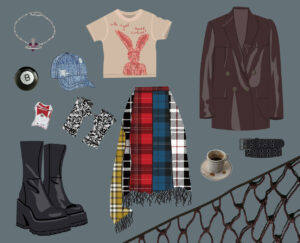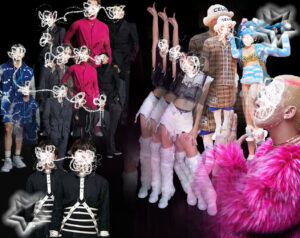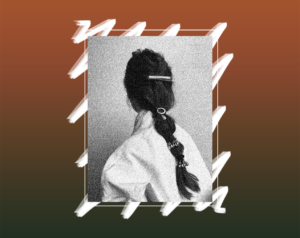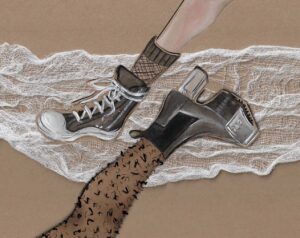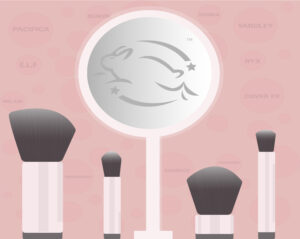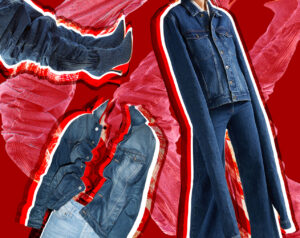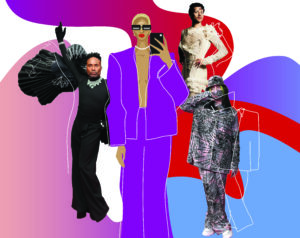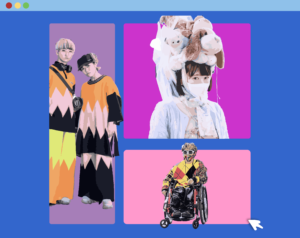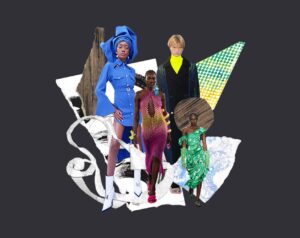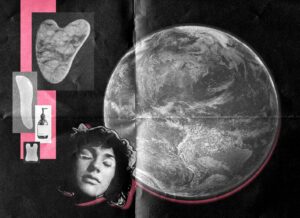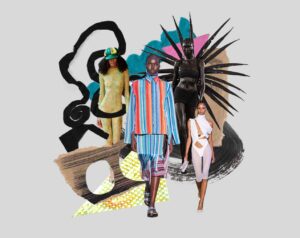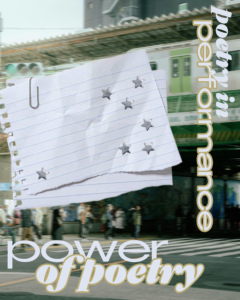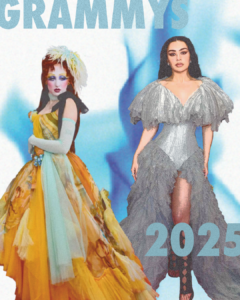AUTHOR: Michael Karant
GRAPHIC DESIGNER: Lisa Tran
COPY EDITOR: Jacob Marion
“I’ve always kind of thought a lot. I’ve always spent a lot of time in my head. I think fashion is interesting as a medium because it’s 3D—you kind of have to visualize how this object would be constructed. I’ve always enjoyed being able to think about it. It makes you escape.” Audrey Chen on her first Canadian Arts and Fashion Awards, bachelor’s collection and inspirations.”
By Michael Karant
Karant: How are you?
Chen: I’m good. How are you?
Karant: So you have your fashion designs. I looked through them and they’re really cool. So what was the inspiration? You have these very, like, intricate, just designs, really, like, very unique.
Chen: Well, my work in general, I find, is always centred around interaction and adaptability and play. Kind of my main three. And with this kind of collection, I was really trying to like, communicate a specific story through the wearer’s interactions with the pieces.
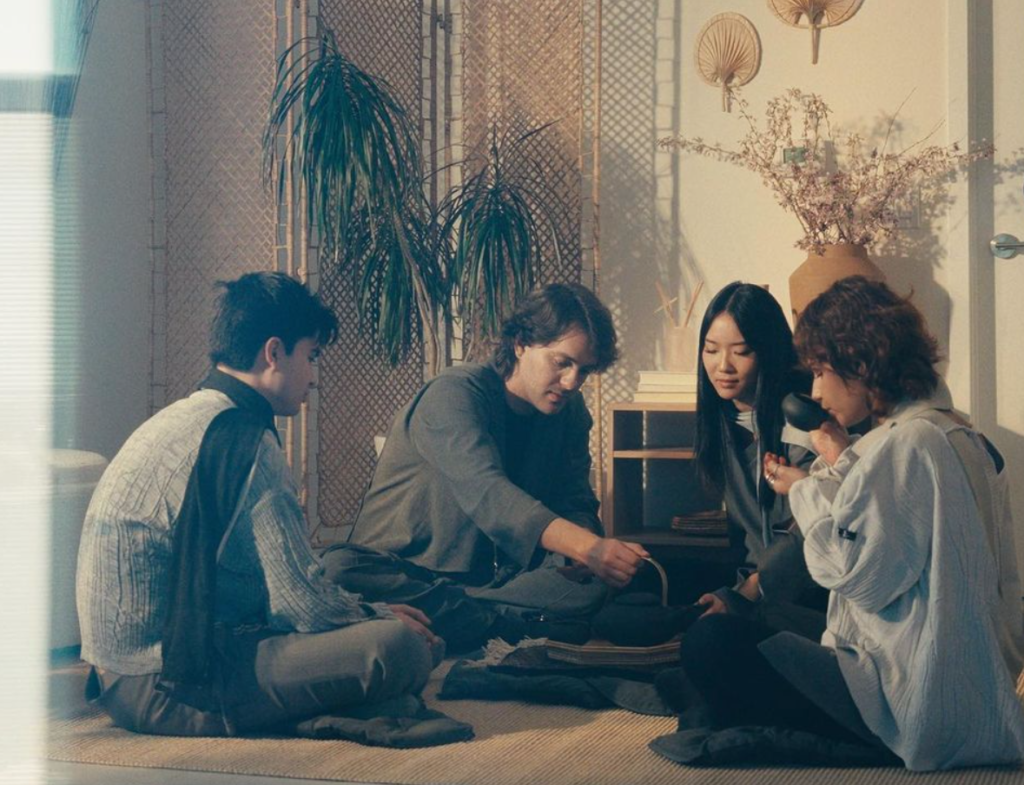
Chen: Yeah. So my bachelor’s collection specifically was called Crossing and Parting. So it’s exploring. Both, like deep connections, but then also, you know, how we inevitably end up, parting ways with people. So it’s about, like, both really appreciating and, involving yourself in a deep community and deep connections.
Karant: Interesting
Chen: But then also being okay, if and when you end up saying farewell. I think for me, it was a way to explore that aspect of being okay if and when things end. Because then that allows me to be even more like open and vulnerable with people. Through that whole thing, I’m not like worrying about, ‘Oh my gosh, what are we?’ Like, ‘How long am I going to see you for’, whatever, you know.
Karant: So how do you see that in the collection or like, what aspects tie back to this theme?
Chen: I think all the modularity and transformability throughout the collection really speaks to this. You’re able to fluidly change back and forth between different forms or different little connections.
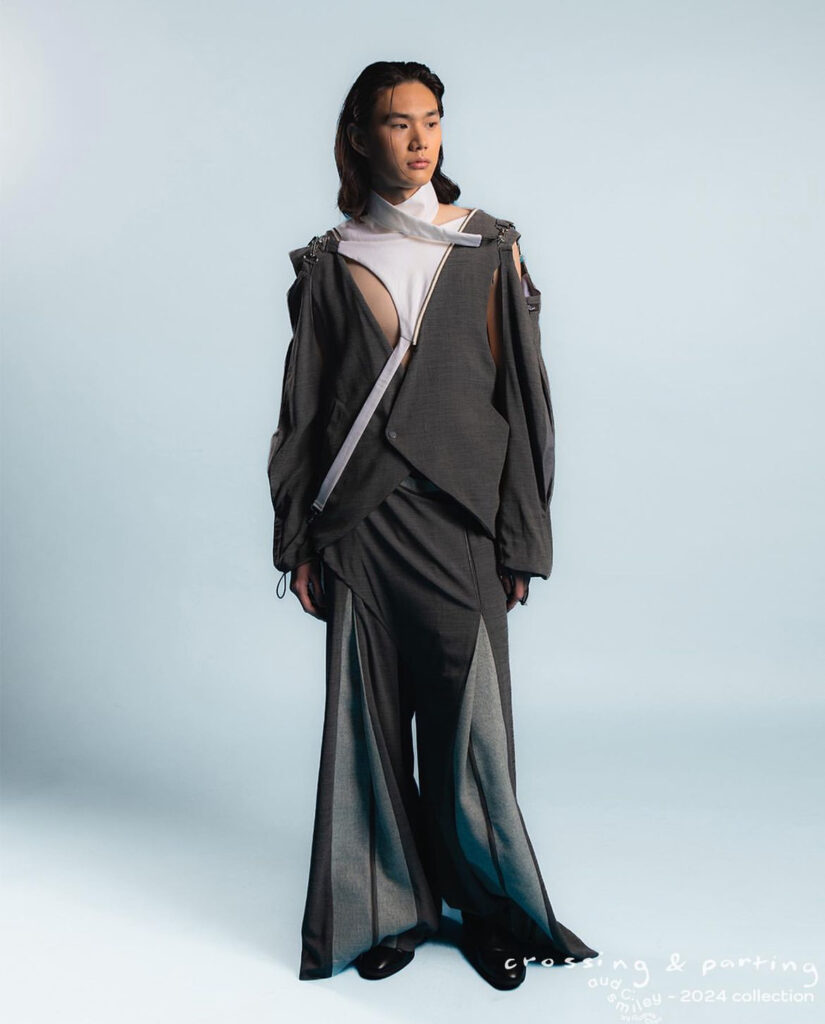
Karant: Can you give me a backstory of how you came up with the physical design in a way?
Chen: Well, I always start with that specific story or feeling. It tends to be like something I kind of like working through, the concept tends to be something where I kind of want to end with a perspective that I want to adopt, or like a lesson I want to have.
At my core, I’m really clingy and hard at letting go of things. And so I think that’s why the message was like to be more open to these types of things. So it starts there. It starts with writing actually.
Karant: With writing?
Chen: Pretty weird. Yeah. I just kind of write these thoughts and things and see what aligns well into the story. Typically I’m kind of working through and then I pull like different images, try to find how this feeling or story translates visually.
And then from those images, I have a couple of collages or things. Then I can see how these visual motifs translate. That’s what I like about this design. There are a lot of negative spaces and such.
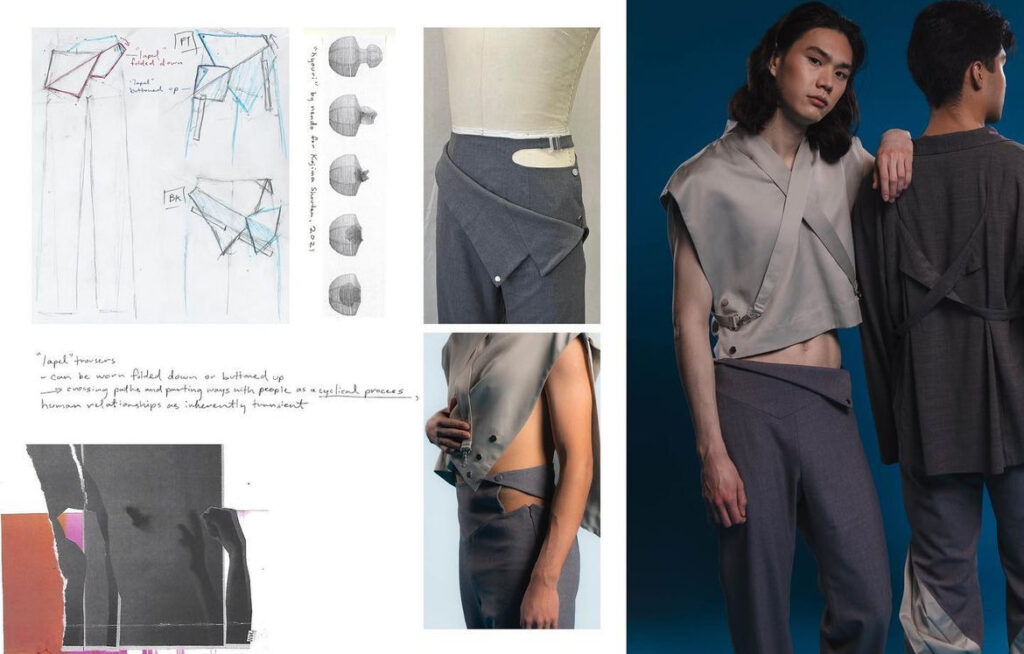
Karant: Yeah. I really like the negative spaces. It creates such an interesting silhouette.
Chen: Because in my collages I was finding myself gravitating towards this a lot, because I think that with this concept, there’s this sense of emptiness at the end of the day or like hollowness. That’s what I was feeling. It’s even though I can learn to be okay with certain people leaving, you still miss them at times or like, feel a void.
Karant: So you’re nominated for a fashion award, how do you feel?
Chen: It was such an honour just to be there and to be in the same room as, like, people you definitely respect. I don’t know, I’m really surprised by how warm everyone was.
Karant: Since you didn’t win, how do you feel about that?
Chen: I mean, you know what? The day of the awards, I was so nervous, and I just kind of kept telling myself, I was like, ‘You don’t have to be too nervous because this won’t be our last time here.’
Karant: Good. I like that positive thinking. So are you working on anything else right now?
Chen: Oh, yeah! I am working on the next collection. And it’s been really interesting to navigate this because, you know, this is really like my first piece of work, that is, outside of school. Like, it’s my first piece of work, not as a student and even just as a human being, it’s crazy, like, to not be in school for once in my life.
Karant: I know it must be.
Chen: I think the thing of being in the same room as heroes or like people you respect. Like, I don’t want to put people on a pedestal ever, but it’s crazy how in that space you’re technically equals. But yeah I’m not going to let myself say it.
Karant: I know what you mean, but it felt good right?
Chen: It felt crazy! But like, to actually then talk to those people makes you realize, like, oh, everybody’s kind of going through the same thing. Everybody’s kind of in the same boat.
Karant: And like, what were you all facing? I guess.
Chen: I was talking to someone else who was also there for the first time. He was like, ‘I’m so nervous, It’s my first time’. I was like, ‘You’re nervous?’ Hahaha… And it’s like, whoa. Like someone I respect that much, also feels the same way. I don’t know, it just makes you realize how human everybody is.
Karant: Did that change your perspective a little?
Chen: 100%. He also told me to introduce myself as the designer, like ‘You’re a designer, not a student, own it.’ I’m trying now to not overthink it too much and I’m excited to fully dive into this new collection.
